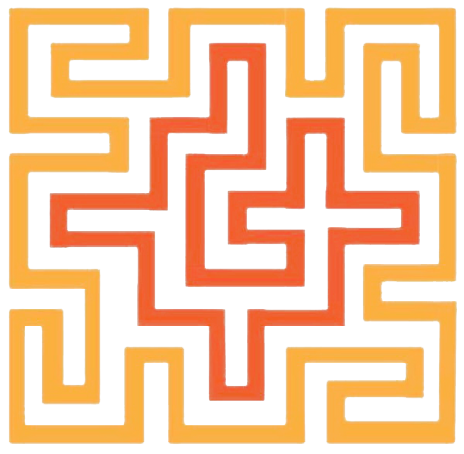Hmong Studies Certificate
And Courses
A certificate in Hmong Studies leverages students competitively to work in growing culturally diverse world. As many more companies and institutions are working to improve equity, diversity, and inclusion, students with a Hmong Studies Certificate will already be well versed in analyzing factors that hinder equality, diversion and inclusion and can draw from Hmong Studies’ attention to resilience, creating community, and redefining belonging to help improve corporate/institutional culture.
Course Descriptions Below.
Certificate Requirements
Required Courses (6 Credits)
Hmong St 101/ANT 103: Intro to Hmong Studies
Hmong St 305: Theorizing Hmong Studies
Elective Courses (6 Credits)
Hmong St 215: Local and Global in Hmong Studies
Hmong St 230: Memory and Trauma
Women’s and Gender Studies 226 QIII: Saving Seeds, Saving Community
Sociology 342: Social Ecology
Elementary / Secondary Ed 353: Hmong Language, Culture, and Learning
Required Classes: (6 credits)
HMONG ST 101/ANTHRO 103: Intro to Hmong Studies (3 units)
There are 299,000 Hmong living in the United States, with most living in California, Minnesota, and Wisconsin. The Hmong are from Laos, a previously colonized country of the French. During the Vietnam War, the United States engaged in a covert operation in Laos called the Secret War, where U.S. CIA operatives recruited Hmong and other ethnic Lao minorities to fight as proxy soldiers for the U.S. against Communist regimes in Southeast Asia. However, the U.S.’s failed military intervention and withdrawal from SE Asia left many Hmong who allied with the U.S. to face reprisal from the new Pathet Lao Communist party that came into power. It is estimated that 150,000 Hmong left Laos. This course is a brief, interdisciplinary, and expansive survey of Hmong Studies from Hmong migration out of China, migration to Southeast Asia, French colonialism of Indochina, American intervention in Laos during the Vietnam War, exodus from Laos and refugee resettlement, and life in the U.S. This course examines the humanistic questions of displacement, trauma, economic inequality, gender and sexuality, race and racialization, as well as diasporic and imagined communities beyond nation-state borders.
HMONG ST 305: Theorizing Hmong Studies (3 units)
Hmong Studies is a growing field that speaks back to multiple disciplines such as anthropology, sociology, history, psychology, political science, public health, education research and much more. Despite Hmong Studies originally being developed by colonial, missionary, and western scholarship, contemporary Hmong Studies has a been a place of contestation, resistance, and reclamation about knowledge production, power, agency, and the larger human experience. This course will sample some of the key theories influential to and further advanced by Hmong Studies.
Electives (6 credits – choose 2 courses from the following):
HMONG ST 215: The Local and Global in Hmong Studies (3 units)
The Hmong diaspora spans the countries of Asia, Europe, and North and South America. This course will introduce you to the varied and complex experiences of Hmong people in the diaspora and develop a critical understanding of how global forces (colonialism, transnationalism, tourism, and many more) shape and inform the diaspora at the local level.
HMONG ST 230: Memory and Trauma (3 units)
This course engages a Southeast Asian refugee lens to critically examine trauma and memory beyond a biomedical paradigm. We will examine trauma and memory as social, political, and cultural experiences that is always in relationship between individual and collective identity, history and the present, representation and experience, and facts and memory. This course seeks to answer the following questions: How does one grapple and make sense of violence, loss, and trauma? How does one remember and commemorate these experiences? What does trauma and memory teach us about our relationships to one another?
SOC 342: Social Ecology (3 units)
A coherent radical critique of current social, political, and anti-ecological trends. 2: a reconstructive, ecological, communitarian, and ethical approach to society. As concerns about environmental problems have arisen in recent decades, people have increasingly recognized that what appear to be environmental issues are social in origin. This course examines various theoretical perspectives and practical approaches to these issues, with a focus on “going local.” Prerequisites: Sociology 101, 151, 203 or consent of instructor.
Elementary/Secondary Ed 353: Hmong Language, Culture, and Learning (3 units)
Designed to familiarize educators and others with the language, culture and educational issues relevant to Hmong people in Wisconsin and the United States. Areas of exploration will include the nature of Hmong language, Hmong history, the traditional family and clan structure, child-rearing mores, healing practices, marriage and funeral practices, and educational beliefs and practices. Contemporary developments and adjustment issues within the Hmong communities will be discussed, especially school achievements and challenges, intergenerational conflicts, youth gangs, and the need to provide high expectations and supportive educational environments for Hmong children, youth and families.
Hmong Studies
Interdisciplinary Studies Office
Sage Hall 3003 and 3464
(920) 424-0964
hmongstudies@uwosh.edu

